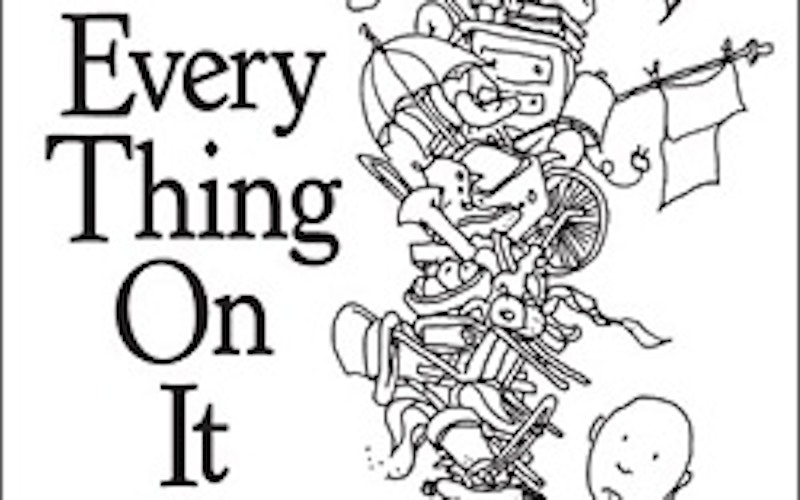
Culture At Large
Shel Silverstein and holy moments
I didn’t expect holding Shel Silverstein’s "Everything On It," which was (way) posthumously released in September, to be such an emotional experience. But when I smoothed out the book and began reading the first poem to my daughter, my throat caught. Perhaps as it was supposed to, since “Years From Now” offers from the grave-ish elements of a dead poet speaking to his readers.
I wasn’t on the verge of tears because "Everything On It" is so good, though it is - chock full of Silverstein’s trademark mixing of silly and sweet, sentimental and somewhat spooky. It wasn’t because my daughter giggled as I once did, making the jokey connection between the words on the page and the sketch next to it. It wasn’t because I loved the way reading this book - reading some Silverstein for the first time once again - brought me back to the first time I’d ever read his words and scanned his drawings.
No, actually, that’s exactly why I got choked up. In fact, reading Silverstein’s new book for the first time brought me back to one of the most important “firsts” of my life: the day I first wanted to be a writer.
I remember that day as clearly as the day when I first knew God was real (probably because both happened when I was 7). I was wandering in my godmother’s basement, running my finger across the spines of books and old teacher’s manuals that lined the gray walls. I reached for one of the books, the one my godmother had sent me to find.
And I sat on a step with "Where the Sidewalk Ends,"opening it up, flipping past the “To Ursula” dedication, straight to the first poem, “Invitation.”
"If you are a dreamer, come in,
If you are a dreamer, a wisher, a liar,
A hope-er, a pray-er, a magic bean buyer…
If you’re a pretender, come sit by my fire"
I accepted Silverstein’s invitation to “come in.” And I read page after page, right there on the step, laughing at pictures and rhymes, tripping over some words too big for my second-grade vocabulary, but loving every minute.
While I had liked books - and reading - before that, it was Silverstein’s use of language that grabbed me. That not only drew me into his book, but drew me into his world - or at least made me want to be part of it, that writing world. A world where artists strung words together, knowing where to snip or tie them off or when to let them run and ramble. Where people could make little girls giggle or sigh.
Today my writing is less about making people giggle and sigh and more about changing minds, pushing buttons, firing up hearts or prodding souls. Yet I still see the connection. I wanted to write because of the power to affect.
As a shy, skinny 7-year-old, I hadn’t yet figured out a way to move or change or affect anyone (besides my baby brother, I suppose), but Silverstein’s words opened up that world of possibility for me.
Today when people ask what made me want to become a writer, I go right back to Silverstein, to "Where the Sidewalk Ends," to being moved by his words and the way he used them.
So as I sat - this time on a sofa with my own 7-year-old daughter - reading Silverstein’s new poems, finding myself once again laughing and sighing (though no longer tripping over any words), I was struck. I realized that my first encounter with Silverstein marked a rather holy moment in my life. And that place I had sat - that bottom basement step - had been holy ground, a place where the Holy Spirit moved among silly twists of words and lit a desire deep within me.
Ever since I’ve been thinking about other moments and thanking God for the way he uses random books and events and people in our lives to invite us - as Silverstein invited me - into the work he’s laid out for us, to invite us to become the people he made us to be.
Now I’m curious: through whom or what has God invited you to become?
(Cover image courtesy of HarperCollins Children's Books.)
Topics: Culture At Large, Arts & Leisure, Books, Home & Family, Family, Parenting